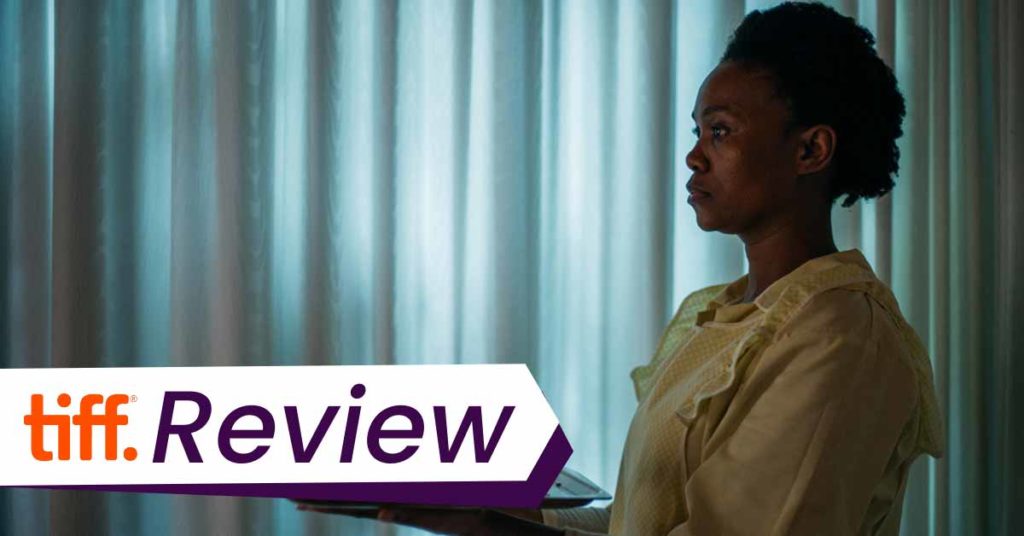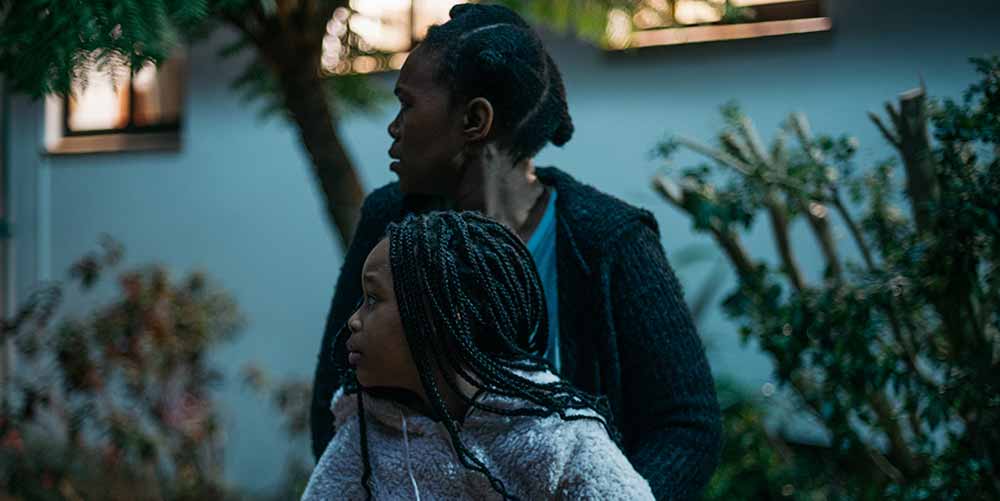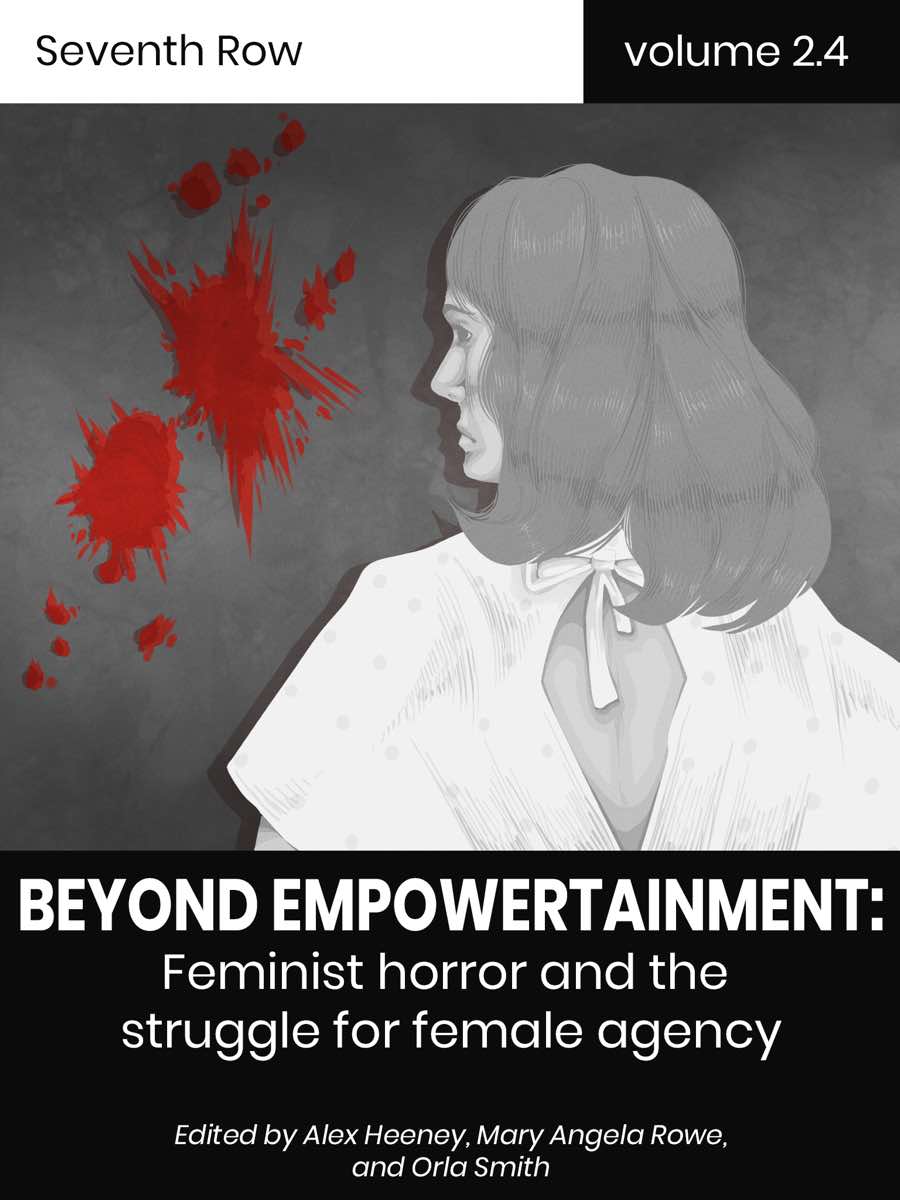In Jenna Cato Bass’s horror film, Good Madam, a Black family’s domestic servitude to a white family is the stuff of nightmares.
Click here to find all of our TIFF 2021 coverage and sign up to our TIFF newsletter.

Discover one film you didn’t know you needed:
Not in the zeitgeist. Not pushed by streamers.
But still easy to find — and worth sitting with.
And a guide to help you do just that.
Good Madam begins with a punishing series of images and sounds: hands scrubbing surfaces, then dipping into dirty, sudsy water. They’re actions that could seem mundane, if they weren’t shot in extreme closeup and enhanced with skin-crawling sound design so as to make them feel like something out of a horror movie (and they are). What’s also significant is that these are Black hands, and these images of housework are intercut with shots of old, black and white family photos, which portray the white madam of the house and her family. This is modern day South Africa, but stripped of context, these opening of Good Madam could easily set up an apartheid-era story.
Jenna Cato Bass’s film follows the headstrong Tsidi (Chumisa Cosa), who loses her housing when her beloved grandmother, with whom she shared a home, dies, and the family sells the house. Tsidi reluctantly takes her young daughter, Winnie (Kamvalethu Jonas Raziya), to stay in the large house that her estranged mother, Mavis (Nosipho Mtebe), has lived and worked in for decades. It’s not her mother’s house though; this is the house of Madam (Jennifer Boraine), an elderly white lady who is largely not seen or heard in the film, as she’s sick in bed.
Madam is almost a ghostly presence; she’s a disembodied, malevolent force, only visible through the family photos on the mantel that stare on at Tsidi. Madam’s presence is felt because Tsidi and her family’s access to a home and income is dependent on Madam. It’s a strong metaphor for the lasting effects of colonialism in South Africa: although apartheid is over, its legacy pervades the country in harmful if sometimes intangible ways. In short, the film posits, if you’re a Black domestic worker in South Africa, your life is a haunted house movie.

The best part of the film is Tsidi’s strained relationship with her mother, which exhibits the tensions between different generations of Black South Africans. As Apartheid ended in 1994, Mavis would have lived a significant portion of her life under it, whereas Tsidi didn’t. Consequently, Mavis seems relatively resigned to, even content with, a life of domestic servitude to a white woman. She’s loyal to Madam and clings to the stability that proximity to Madam affords her. Meanwhile, Tsidi is a wholly more modern woman who values independence from white people. She feels disdain toward her mother’s compliance and is constantly on edge that her daughter might be internalising racist ideas. Her fears aren’t unfounded; at one point, Winnie draws a picture of her family for school and draws them all as white people, even including Madam in the picture, which causes Tsidi to freak out.
The film uses horror tropes to heighten Tsidi’s fears; Tsidi is right to feel creeped out in the house, because it’s literally haunted. Her frustration with her mother’s compliance to white authority figures is strengthened by the fact that there might be actual brainwashing going on. At times, turning complicated racial tensions into simple supernatural threats veers on flattening their challenging nuances. But the film certainly succeeds in using horror to convey the visceral unease that Tsidi feels in white spaces, and her desperation to protect her daughter from white supremecist influences, even in a situation where she’s forced to rely on white people for a place to live.
You could be missing out on opportunities to watch great films like Jenna Cato Bass’s Good Madam at virtual cinemas, VOD, and festivals.
Subscribe to the Seventh Row newsletter to stay in the know.
Subscribers to our newsletter get an email every Friday which details great new streaming options in Canada, the US, and the UK.
Click here to subscribe to the Seventh Row newsletter.


